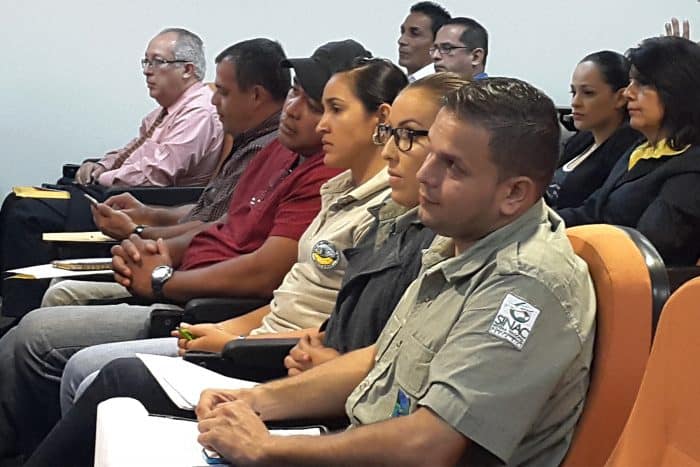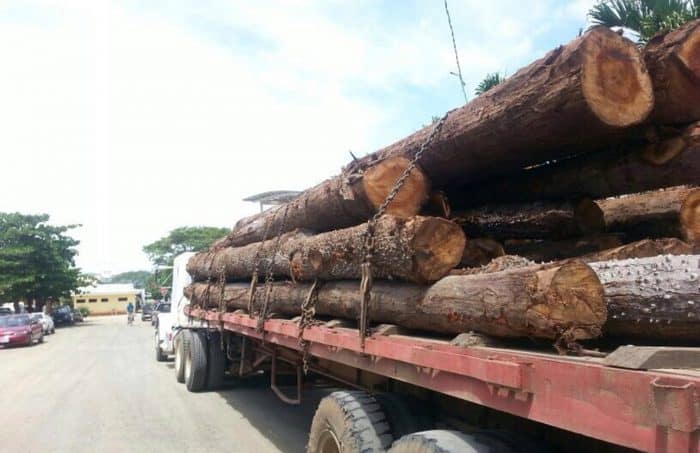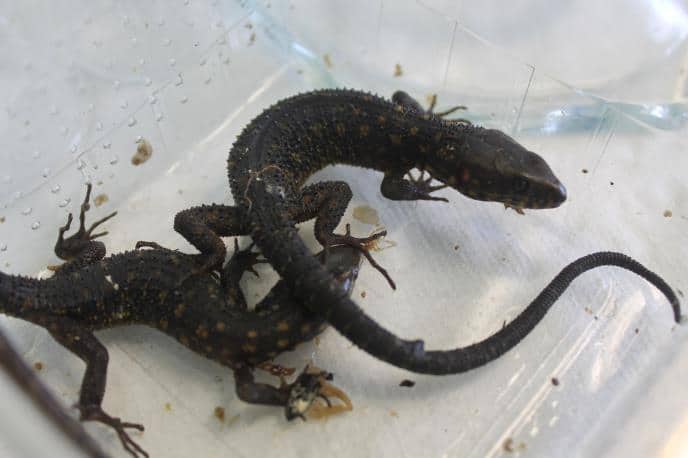Late last year, security at Juan Santamaría International Airport outside of San José uncovered more than 400 live animals in the luggage of a German tourist named Maciej Oskroba. The find, the largest of its kind in 20 years, would have been worth thousands of euros on the European pet market. Oskroba’s ham-fisted attempt to sneak the animals out was easily foiled, but the wildlife trade is more often a bureaucratic challenge with officials scrutinizing paperwork instead of opening suitcases full of reptiles.
On Friday, customs and border inspectors in Costa Rica are wrapping up a two-day training session on enforcing the Convention on International Trade in Endangered Species of Wild Fauna and Flora, or CITES, an international wildlife trade regulatory agreement, with technical assistance from the U.S. Fish and Wildlife Service and the Department of the Interior. More than 20 customs inspectors and 10 officials from the National System of Conservation Areas attended the training event in the Costa Rican capital supported by the U.S. Embassy in San José. The training this week in Costa Rica was one of several across Central America and Panama.

The United States is one of the world’s largest importers of wild fauna and flora. Central America’s proximity to the U.S. makes it even more important for the region and U.S. customs officials to be on the same page when it comes to flora and fauna trade.
“As a consuming country, it’s incumbent on us to make sure that trade is happening legally and sustainably,” said Christina Kish, project manager with the International Technical Assistance Program of the U.S. Department of the Interior.
Kish said part of her job is to emphasize the impact of illegal wildlife trade from both environmental and security perspectives, noting that goods like ivory, for example, can be major sources of revenue for organized crime or terrorists.
“In countries where security, drugs and weapons are a high priority things like environment and wildlife get down at the bottom of the list,” Kish said. “We try to stress why it’s important.”
Sarita Valentin, an inspector with the U.S. Fish and Wildlife Service in Miami, said that she sees a large number of butterflies and reptile leather illegally imported from Central America. Seasonally, she said, officials also often see a spike in mammals being smuggled into the country by collectors or the pet market, but also for religious ceremonies in some cases.
Part of the responsibility beyond assisting in CITES training is also informing the roughly one million U.S. tourists who visit Costa Rica annually about how their purchases abroad can affect wildlife and flora stocks.
“Tourism is a driver for wildlife demand,” Kish said. “Someone could buy a bracelet made of sea turtle shell in Central America, for example. It’s not a lot individually, but put that together with a lot of people buying trinkets and every one comes from a turtle shell. It’s a lot.”
Animal trafficking tends to catch the media’s attention, but Kish said that precious hardwoods from Latin America are increasingly in demand. Mahogany once was synonymous with luxury in the United States, but as it became more scarce over the years, other wood has risen in demand.

Costa Rican Environment Vice Minister Patricia Madrigal agreed. Madrigal said that cocobolo (Dalbergia retusa) – also known as black rosewood – has been smuggled into markets in India and China by organized crime. Dozens of people have been arrested in recent years here for illegally cutting down the endangered trees found in Guanacaste’s dry tropical forests. The hardwood is prized for its durability, dark reddish color and stability.
Another item of particular interest for Costa Rica covered under CITES is various species of shark fins. Madrigal defended the government’s decision in March to export 1,200 kilograms of shark fins – the equivalent of about 2,000 hammerhead sharks – allegedly harvested as bycatch, a move criticized by conservationists. Madrigal said the government’s non-determintal finding required by CITES determined the export would not harm shark stocks. Conservationists strongly disputed that claim, pointing out that the Costa Rican government lacked the data to back it up.
The legal responsibility for the shipment of animals or plants ultimately rests with the government, said Sarita Valentin of the U.S. Fish and Wildlife Service in Miami.
Governments are officially tasked with certifying items regulated under CITES, but some airlines have announced voluntary rules for what kinds of wildlife they will ship. In April, American Airlines announced it would no longer ship shark fins, a delicacy in Asia that has driven many Costa Rican sharks into endangered status. American, Delta, and United Airlines announced that they would no longer allow the shipment of lion, leopard, elephant, rhinoceros and buffalo hunting trophies, following the hunting death of one of Africa’s most iconic lions, Cecil, who was killed in Zimbabwe by a U.S. big-game hunter.
Department of the Interior project manager Christina Kish said that the existing laws on flora and fauna trafficking are robust but need trained staff and resources to enforce them effectively. CITES is often cited in regards to goods that are prohibited to trade but much of the convention deals with the regulation of legal wildlife trade, which can be an important source of income for a developing country.
“The volume of trade is overwhelming. It’s a challenge. We’re asking them to facilitate the legal trade but also to be hyper vigilant and detect all the illegal trade,” Kish said. “I don’t envy customs inspectors’ task.”






